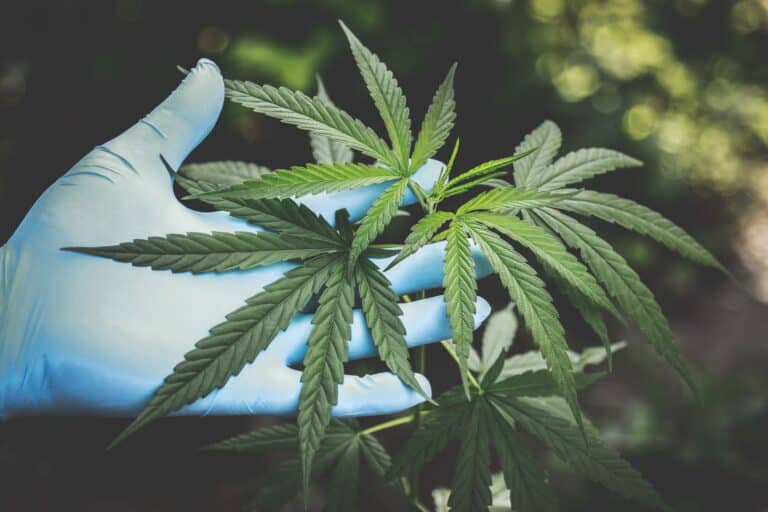As new agricultural legislation looms over a divided Congress, individuals and businesses in the hemp and CBD industry find themselves in a complex web of opportunity and legal oversight. The spotlight shines on Delta-8 THC, a hemp derivative, and the challenges it presents.
Legal Battles and Ambiguities
Mike Kimzey, the owner of Discount Smokes in Bullitt County, Kentucky, vividly remembers the day his store was raided by state police in 2021 for carrying Delta-8 THC products. Despite hemp’s federal legalization in 2018, the raid sent shockwaves through the industry.
Kimzey expresses his concerns, saying, “The injunction is great. What I worry about is the renewal of the Farm Bill.” His worries reflect the uncertainties that continue to plague the hemp industry, even as it gains ground.
A Legal Rollercoaster
Thousands of dollars in merchandise were seized from stores like Kimzey’s, and it took months before a Boone County, Kentucky Circuit Court declared the product legal, issuing a permanent injunction against law enforcement in 2022.
Katie Moyer, President of the Kentucky Hemp Association, points out a crucial factor: “So retailers weren’t aware of the letter, but law enforcement and license-holders were.” An April 2021 letter from the Kentucky Department of Agriculture declared Delta-8 an illegal synthetic drug, sparking a successful lawsuit against the state.
Delta-8’s Transformative Potential
Dee Dee Taylor, CEO and Founder of 502 Hemp in Louisville, Kentucky, initially had her reservations about Delta-8. However, her perspective changed when she witnessed the positive impact it had on her husband’s health. “Sorry, but when I saw what it did for my husband, and it kept him from seizing… No one could change my mind after that,” she says.
Delta-8’s proliferation stems from the ambiguities present in the 2018 Farm Bill, which legalized hemp cultivation after decades of prohibition. Justin Journay, founder, and CEO of 3CHI, an industry leader in minor cannabinoid research, saw an opportunity. He pioneered a method to make Delta-8 out of CBD, and 3CHI quickly gained prominence.
The Advantages and Concerns
One of Delta-8’s key advantages is its potentially reduced psychoactive effect compared to Delta-9 THC found in marijuana. Journay explains, “The real advantage of Delta-8 is that it isn’t as intoxicating. It’s more clear-headed, more functional, and so when you get into why people use cannabis, whether that’s hemp or marijuana in general – a lot of the time it’s medicinal.”
However, Delta-8’s rise hasn’t been without controversy. Critics raise concerns about the lack of mandated third-party testing and peer-reviewed studies. They worry that chemicals and solvents used by some processors could result in unsafe byproducts, especially for children.
Navigating the Regulatory Maze
The legal status of Delta-8 remains a moving target. While a federal court upheld the Farm Bill “loophole,” many states have interpreted Delta-8 differently. Early this year, the federal Drug Enforcement Administration clarified its view that synthetically obtained Delta-8 and Delta-9 THC are illegal controlled substances.
The future of Delta-8 and other hemp derivatives hangs in the balance as local governments are courted by hemp influencers. Congress will consider the crop’s interpretation under the next Farm Bill. Advocates see state examples as potential guides for Congress but caution against overregulation.
Katie Moyer succinctly summarizes the complex situation, saying, “We’re going to have fifty different cannabis laws in fifty different states, and then we’re going to have to, kind of, piecemeal everything together, but…Ultimately, best-case scenario, the government just minds its own business.”
In this evolving landscape, Delta-8 remains a symbol of both innovation and regulatory challenges, reflecting the broader journey of the hemp industry as it navigates legal uncertainties and strives for recognition and acceptance.
Watch the original piece here














